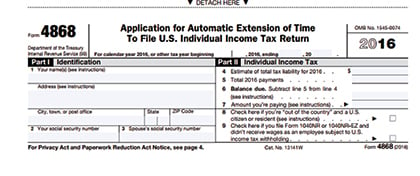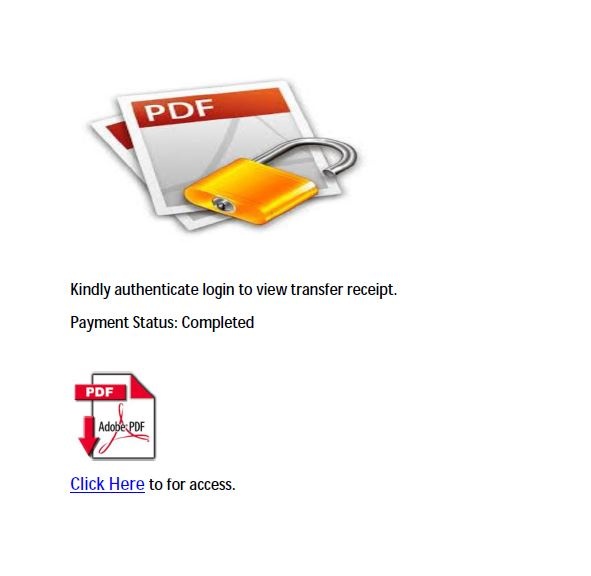Employees of closely held corporations, whether structured as a C corporation or an S corporation, who also serve as shareholders of that same corporation, may find themselves in a precarious position when it comes to determining their compensation.
Patience is a Virtue: Why you need to (still!) wait to receive your tax refund
Eric James Taxes - Individual , Eric JamesFor the taxpayers who went through the painstaking process of sifting through their shoebox full of receipts in the attempt to file their income tax return early, we have to offer you a gentle and friendly reminder that refunds stemming from returns claiming the Earned Income Tax Credit or the Additional Child Tax credit will be delayed until February 15.
Tax season. For those due a refund, the focus is how to get their refund sooner. While many remain calm realizing it’s time to sift through their shoe box full of 2016 papers and gather needed receipts to get the process in motion, others experience a high level of stress stemming from confusion or uncertainty as to what they will need to help their accountant accurately prepare their income tax return.
What can you do to be one of the calm and peaceful taxpayers enjoying a speedy refund? Simple. Learn the seven things that your accountant needs to receive from you to prepare your taxes efficiently and, ultimately, help get your tax refund sooner.
For Individual Taxpayers
- Mortgage interest and property taxes
Your mortgage lender likely issued you an IRS Form 1098 at the beginning of the year that summarizes your mortgage interest and property tax payments you made throughout the previous year. Your accountant should ask you for this form to claim the mortgage-interest deduction that is available to homeowners (there are limitations). Your accountant will also refer to this to calculate part of your home-office deduction, if applicable. If you carry more than one mortgage, be sure to provide Form 1098 for each as you can also potentially deduct interest paid on one other property as a second qualified residence. This is also the case if you have both mortgage interest and home equity loan interest on your residence.
- Don’t forget your 1098-T!
The IRS rewards those who go to school by offering very generous education credits. You can save up to $2,500 by using the American Opportunity Credit and up to $2,000 by using the Lifetime Learning Credit. The education credit is applicable if the college or vocational school is:
- Accredited and
- Eligible to participate in a student aid program administered by the U.S. Department of Education.
The IRS realizes that this generosity has caused criminals to abuse the system by filing fraudulent tax returns claiming these credits to trigger larger refunds. Consequently, with the passage of the Preferences Extension Act of 2015, the IRS added a new requirement that must be met in order to claim an education credit. Starting with the 2016 tax year, you must have a 1098-T tuition statement in order to claim either of these credits.
For Business Owners:
- Company Financial Statements
Your company financial statements are the building blocks of your business. Financial statements include three main reports: a balance sheet, an income statement, and a cash flow statement. If possible, bring a clean trial balance and general ledger (your accountant will thank you profusely!). For tax purposes, the income statement and the trial balance are the documents most relied upon by your accountant as they contain all the activity for the year along with the ending assets and liabilities.
- Automobile Mileage and Expense Log (for those who are self-employed)
If you use your own vehicle for business purposes, you can claim a portion of the car’s upkeep expenses as a tax deduction against your business income. The IRS allows you to calculate this one of two ways: either the actual expenses method or the simplified method.
- The simplified method allows you to apply an IRS-mandated mileage rate to the total business miles driven in the year. For the tax year 2016, the standard mileage rate is $0.54 per mile.
- The actual expense method is one’s other choice for deducting the business-related cost of the use of a vehicle. Know first, you cannot use both the actual and simplified expense method. The actual expense method requires you to keep a detailed log of vehicle expenses, such as gasoline, oil, license fees, lease payments, tires, and deprecation. If you use your car personally at all, you will have to be careful in tracking your mileage, making certain that you separate your business use from your personal use. Yes, this means you (or your accountant) will need to allocate what percentage of total vehicle expenses were used for business purposes. While the actual method requires much more detail and recordkeeping, it also provides (typically) a greater deduction for the automobile expense. The IRS suggests if you are unsure which method is most advantageous, to calculate or project under both methods and take the larger deduction of the two.
Understand, if the vehicle you are using is provided by your employer, you can only deduct unreimbursed expenses.
From wacky tie day to a hilariously difficult spelling bee, CPAinting to “dress as a Partner,” the Zinner team shared wit and wisdom during the firm’s annual United Way of Greater Cleveland fundraising campaign.
“We are fortunate that the Zinner staff are inherently caring, giving folks. As long-time supporters of the United Way and the people, programs, and organizations they serve, it was our pleasure to find meaningful ways to not only raise funds, but also raise awareness for the work they do,” said Sue Krantz, partner.
Check out some of the fun snapshots from our campaign activities.
These emails about QuickBooks software are actually a phishing scam!
Zinner & Co. fraud , quickbooksWhat caught our eye today? This article by Emily Valla, special to the Idaho Statesman.
Why Your Bag of Used Clothing Isn’t Worth $1,000: The 2016 Noncash Charitable Contribution Fair Market Value Guide
Eric James Taxes - Individual , Eric JamesLike many taxpayers, you may have recently (or routinely) donated a few bags of clothing and household items to a 501(c)(3) charitable organization. The $125 designer jeans, a box of barely-used stuffed animals, and eclectic wall art were sought-after purchases that found their way to your home through your hard-earned dollars. Certainly, your goods were priceless treasures to you and you presumed the same for the lucky charity to which you would donate them.
Each year, some taxpayers find themselves scrambling to find their income tax return paperwork, a year's worth of receipts, and ultimately becomes stressed in the attempt to file their tax return by April 18. Others know and understand that simply filing a tax extension can earn them time, reduce their stress, and possibly, incur a lower tax bill.
Do you remember when you were in school and the teacher would give each student a worksheet to “spot the difference” between two side-by-side detailed scenes? You would look carefully at each of the two images, trying to spot subtle details, such as an extra button on a shirt or a missing shoe on a person. Maybe it was the number of petals on a daisy or a cone of ice cream missing the cherry on top. The directions would indicate there would be six differences, but try as hard as you did, (and even when you asked a classmate for help) you could still only find four or five differences, and were convinced there was never a sixth.
Published January 24 2017, 12:59pm EST
AccountingToday.com
Tax Return Planning Guide: Download Your Free Ebook
Zinner & Co. tax services , Taxes - Corporate & Business , Taxes - Individual| It's that time of year again when most are thinking about filling out their tax return. Many are sifting through shoeboxes full of receipts, others, wondering if they have a receipt. |
About Us

Since 1938, Zinner has counseled individuals and businesses from start-up to succession. At Zinner, we strive to ensure we understand your business and recognize threats that could impact your financial situation.
Recent Blog Posts
Categories
- 1031 Exchange (2)
- 401k (2)
- 529 plan (4)
- ABLE Act (1)
- account systems (3)
- accounting (8)
- Affordable Care Act (8)
- alimony (2)
- American Rescue Plan Act (1)
- Ask the Expert (5)
- Audit and Assurance Department (13)
- audits (8)
- Bank Secrecy Act (1)
- banks (1)
- Barbara Theofilos (6)
- Beneficial Ownership Information (1)
- Bitcoin (1)
- block chain (2)
- BOI (3)
- Bookkeeping (1)
- Brett W. Neate (28)
- budgets (1)
- Bureau of Worker's Compensation (12)
- Business - Management, Issues & Concerns (50)
- business income deduction (3)
- business succession (7)
- business travel expense (3)
- business valuation (5)
- capital gains (2)
- careers (7)
- cash flow (2)
- Child Tax Credit (2)
- Chris Valponi (8)
- City of Cleveland (1)
- Cleveland COVID-19 Rapid Response Fund (1)
- Cleveland Rape Crisis Center (2)
- college (3)
- Community (24)
- Compliance (1)
- Coronavirus (24)
- Corporate Transparency Act (1)
- COVID-19 (30)
- Credit card fraud (5)
- credit reporting (2)
- cryptocurrency (2)
- CTA (2)
- cybersecurity (16)
- dead (1)
- DeAnna Alger (6)
- death (2)
- debt (4)
- deductions (14)
- Deferring Tax Payments (4)
- Department of Job and Family Services (2)
- depreciation (1)
- Digital Tax Payment (1)
- divorce (4)
- DOMA (3)
- Economic Impact Payments (2)
- Economic Injury Disaster Loan (4)
- education (8)
- EIDL (1)
- electronic filing (4)
- Electronic Tax Payments (2)
- Emergency Working Capital Program (1)
- employee benefit plan auditor (1)
- Employee Leave (2)
- Employee or Independent Contractor (6)
- Employee Retention Credit (3)
- employment (2)
- ERC (3)
- Eric James (8)
- Estates, Gifts & Trusts (48)
- expenses (5)
- Families First Coronavirus Response Act (2)
- FASB (1)
- FBAR (1)
- FDIC coverage (1)
- Federal Assistance (4)
- filing (3)
- financial planning (8)
- Financial Planning - College (9)
- financing (3)
- Firm news (119)
- first responders (1)
- FMLA (1)
- foreign assets (3)
- fraud (38)
- FSA (1)
- fundraising (9)
- Gabe Adler (1)
- gift tax (5)
- HDHP (2)
- health care (3)
- home (2)
- home office (1)
- Howard Kass (2)
- HRA (1)
- HSA (5)
- identity theft (32)
- income (1)
- income tax (57)
- independent contractor (1)
- Inflation (1)
- Insurance (7)
- internal control (4)
- international (2)
- Intuit (1)
- investments (4)
- IRS (88)
- jobs (5)
- John Husted (1)
- K-1 (1)
- Laura Haines (3)
- Layoff (2)
- Layoffs (1)
- leadership (3)
- lease accounting standards (1)
- life insurance (1)
- LLC (3)
- Loans (2)
- longevity income annuities (1)
- Lorenzo's Dog Training (1)
- Magic of Lights (1)
- management advisory (3)
- manufacturing (2)
- Matt Szydlowski (3)
- medical (7)
- Medicare (2)
- mergers and acquisitions (1)
- Mike DeWine (2)
- Millennial Concepts (2)
- minimum wage (1)
- NAIOP (1)
- National Defense Act (1)
- non-profit reporting (10)
- non-profits (38)
- not-for-profit (26)
- ODJFS (1)
- office (1)
- ohio (13)
- Ohio business owners (18)
- Ohio Department of Jobs and Family Services (3)
- Ohio Department of Taxation (3)
- Ohio Incumbent Workforce Training Voucher Program (1)
- Online Tax Payment (3)
- Operations (2)
- OPERS (1)
- owners of foreign entities (1)
- partnerships (5)
- passwords (1)
- Paycheck Protection Program (9)
- payroll (8)
- penalties (3)
- pension (2)
- personal finance (2)
- planning (4)
- ppp (7)
- Productivity (5)
- Qualified Business Income (1)
- quickbooks (10)
- real estate (14)
- record retention (2)
- records (2)
- Reporting (1)
- Republican National Convention (1)
- Retirement Planning & IRAs (53)
- Richard Huszai, CPA (5)
- RITA (1)
- Robin Baum (6)
- RRF (1)
- S Corporation (1)
- SALT (8)
- SBA (8)
- scams (12)
- SECURE 2.0 Act (1)
- security (6)
- SharedWorks (1)
- Shutdown (3)
- Silver Linings (9)
- simplified employee pension (1)
- Small Business (5)
- SMB (12)
- Social Media (1)
- social security (4)
- Speaker Series (2)
- spouse (1)
- start ups (8)
- Stay at Home Order (3)
- Steven Mnuchin (1)
- Sue Krantz (6)
- SVOG (1)
- tangible property (1)
- tax (27)
- tax avoidance (12)
- Tax Credit (7)
- Tax Cuts and Jobs Act of 2017 (31)
- Tax Exempt (1)
- Tax Holiday (1)
- Tax Interns (2)
- tax services (28)
- taxes (45)
- Taxes - Corporate & Business (104)
- Taxes - Individual (117)
- Taxes - Planning, Rules and Returns (188)
- TechCred (1)
- technology (7)
- The CARES Act (6)
- The SOURCE (1)
- tiag (3)
- transaction advisory (2)
- Treasury Department (5)
- tuition (3)
- U.S. Department of the Treasury (1)
- U.S. Small Business Administration (6)
- Unclaimed Funds (1)
- Unemployment Benefits (4)
- withdrawls (2)
- withholding (6)
- Workers Comp Billing Changes (1)
- Zinner & Co. (32)
- Zinner News (30)












